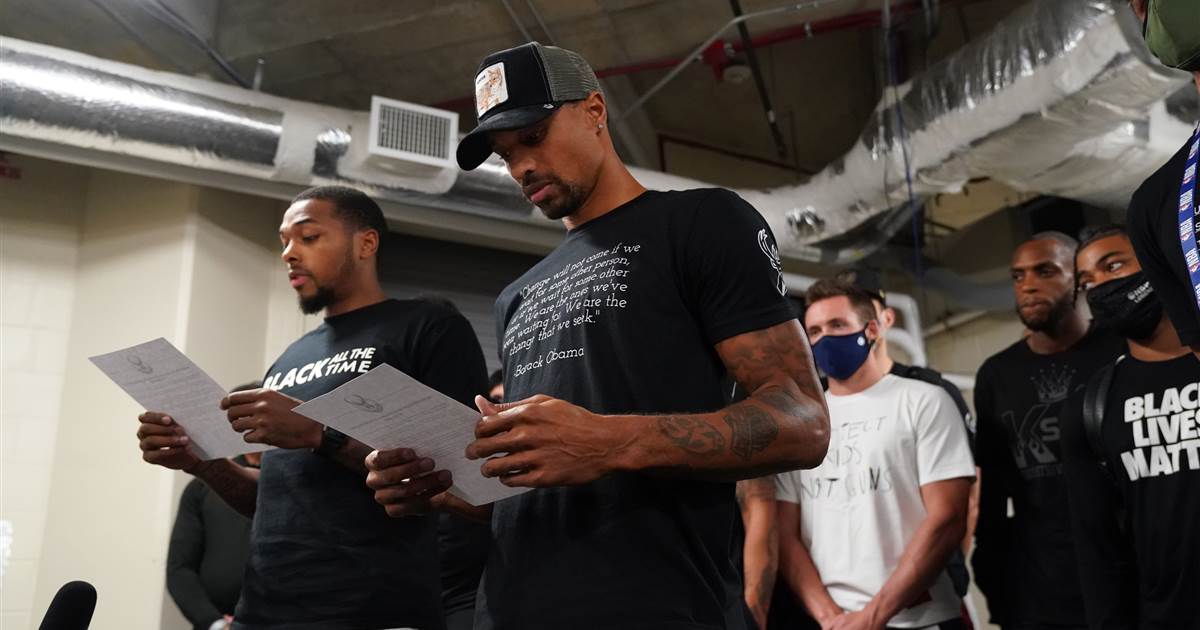Postponing professional sport is never a decision lightly taken. Sport dominates our media whilst generating immense profit for broadcasters. Its athletes are some of the most influential role models in society. Millions are drawn to watch them, day in, day out: Around sixty percent of Americans would describe themselves as sports fans, estimately 200,000,000 people. Amidst the confusion of the past 6 months, for many the return of sport has symbolised a return to normality.
As such, the postponement of sports matches across America during the past week is no minor occurrence. The implications will be felt across the social spectrum.
Led by athletes themselves, the protest comes after Jacob Blake, a 29-year-old African American, was shot 7 times by police on the 23 rd of August in Kenosha, Wisconsin. Mr Blake is currently in hospital, paralysed from the waist down. It is unknown whether he’ll recover.
The movement was initially led by the Milwaukee Bucks, also based in Wisconsin, who refused to play their basketball match against Orlando Magic on Wednesday. The subsequent boycott from other basketball teams prompted the NBA and WNBA to postpone all games that day.
An official statement released by the Bucks said that “Despite the overwhelming plea for change, there has been no action, so our focus today cannot be on basketball.” After 3 days of further postponements, play resumed on Saturday.
Player boycotts have affected other American Sports: three baseball games were called off on Wednesday, as well as five football matches.
Naomi Osaka, former tennis world number one, also cancelled her semi-final match at the WTA in New York. The U.S Tennis Association later stated it was going to postpone all matches on Thursday, in doing so “collectively taking a stance against racial inequality and social injustice”.
Osaka herself tweeted that “there are much more important matters that need immediate attention, rather than watching me play Tennis”.
The movement has garnered support from a host of U.S politicians. Barack Obama commended the Bucks for “standing up for what they believe in,” issuing a timely reminder that it will require “all our institutions to stand up for our values”. Praise was also forthcoming from the Democrat’s presidential candidates Joe Biden and Kamala Harris, the latter urging athletes to keep standing up and demanding change.
President Trump was less appreciative of the efforts made by athletes: he stated that the NBA had become akin to a “political organisation” and demanded on twitter that American Football games be resumed. Trump’s desire to separate sport and politics would undoubtedly change if, say, the LA Lakers or New York Yankees endorsed his presidency.
The truth is that sport has a vital role to play in shaping the political future. We need only look back to the impact that American Football quarterback and civil rights activist Colin Kaepernick had on the national conscience by refusing to stand during the national anthem in 2016. His actions inspired other U.S athletes to follow his lead. The political reaction, be it positive or negative, catalysed a nationwide conversation. Kaepernick was protesting, as players were just last week, police brutality and injustice against America’s Black population.
The past week’s events will hope to mirror Kaepernick’s work. It is a reminder that Professional sportsmen and women hold power in influencing the politics of a nation. If change is not forthcoming, they will exercise this power again.
Image Credit: NBC News

